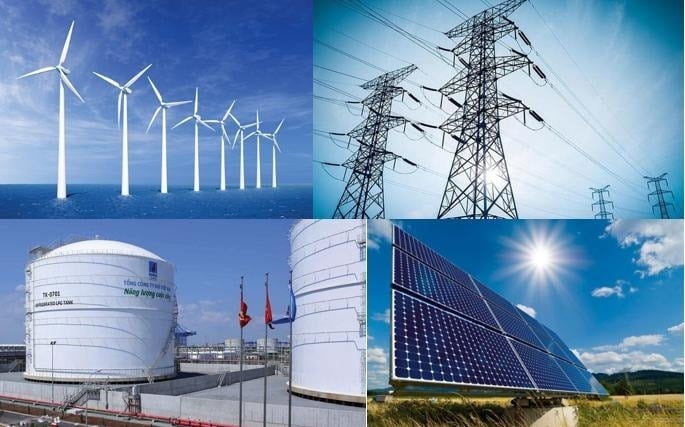
Government's Action Program to implement Resolution No. 70-NQ/TW dated August 20, 2025 of the Politburo on ensuring national energy security to 2030, with a vision to 2045
The Government issued Resolution 328/NQ-CP on the Government's Action Program to implement Resolution No. 70-NQ/TW dated August 20, 2025 of the Politburo on ensuring national energy security to 2030, with a vision to 2045 (Program).
Ensuring national energy security to meet socio -economic development requirements in the new situation
The objective of the Program is to institutionalize and fully implement the viewpoints, goals, tasks and solutions set out in Resolution No. 70-NQ/TW dated August 20, 2025 of the Politburo on ensuring national energy security until 2030, with a vision to 2045 (Resolution No. 70-NQ/TW); firmly ensure national energy security; provide adequate, stable, high-quality energy, reduce emissions for socio-economic development, ensure national defense and security, improve people's lives, and protect the ecological environment.
Strive to achieve a number of key targets by 2030: total primary energy supply of about 150 - 170 million tons of oil equivalent; total final energy consumption of about 120 - 130 million tons of oil equivalent; energy saving ratio of total final energy consumption compared to the normal development scenario of about 8 - 10%; reduction of greenhouse gas emissions from energy activities compared to the normal development scenario of about 15 - 35%.
The program identifies specific tasks for ministries, branches and localities to develop programs and plans to implement, inspect, monitor and evaluate the implementation of Resolution No. 70-NQ/TW; perfect the legal system to facilitate national energy development in the spirit of the Resolution; strengthen supervision of the development and implementation of strategies, plans and policies for national energy development; firmly ensure national energy security to meet the requirements of socio-economic development in the new situation.
In order to achieve the goals set out in Resolution No. 70-NQ/TW, in addition to regular tasks, the Government requires ministries, ministerial-level agencies, government agencies, People's Committees of provinces and centrally run cities, and enterprises in the energy sector to: Strengthen the leadership of the Party, state management and the participation of the entire political system and the people in ensuring energy security; perfect institutions and policies to become competitive advantages, a solid foundation, and a strong driving force to promote energy development; develop energy supply and infrastructure, firmly ensure energy security, and meet growth requirements; promote energy saving, environmental protection, respond to climate change, and flexibly implement international commitments on emission reduction; establish governance measures and respond to risks; focus on mobilizing all social resources, strongly encouraging the private sector to participate in energy development; create breakthroughs in science and technology development, innovation, digital transformation and human resource training in the energy sector; strengthen international cooperation, contribute to promoting rapid and sustainable development of the energy sector and ensuring national energy security.
Building a national energy industrial center integrating gas, liquefied gas, electricity, refining, petrochemicals, and renewable energy in localities
To develop energy supply and infrastructure, firmly ensure energy security, and meet growth requirements, the Government requires relevant authorities to develop scenarios and specific implementation roadmaps to ensure energy meets economic growth requirements until 2030, with a vision to 2045; diversify energy supply sources; have a priority mechanism for proactively developing domestic energy, reducing import dependence, prioritizing increased exploitation and efficient use of domestic energy sources; deploy the construction and formation of a national energy industry center integrating gas, liquefied gas, electricity, refining, petrochemicals, and renewable energy in localities with advantages, in sync with policies on exploitation, output consumption, and domestic natural gas prices.
At the same time, remove difficulties, speed up the implementation of key energy projects; strengthen strategic energy reserves and energy storage; build the energy sector and develop the energy equipment manufacturing industry; develop modern, smart, sustainable energy infrastructure, effectively connecting the region and the world...
Apply a carbon tax on the use of fossil fuels
Promoting energy saving, environmental protection, responding to climate change, flexibly implementing international commitments on emission reduction; establishing governance measures and responding to risks, the Government requires relevant ministries, branches and localities to restructure, encourage the development of industries that use energy efficiently, bringing the highest socio-economic benefits; specifying mandatory energy saving indicators for each industry, field and locality; gradually eliminating equipment, machinery and means with low energy efficiency and high environmental emissions; encouraging businesses to invest in new, high-efficiency technologies.
Along with that, it is necessary to synchronously and flexibly implement solutions to reduce greenhouse gas emissions in the energy sector in accordance with the country's development situation; have plans for coal-fired thermal power plants to convert fuel to using natural gas, biomass fuel, hydrogen, ammonia, etc.; study and apply appropriate carbon tax policies for the use of fossil fuels; prescribe standards for carbon emission limits, etc.
Creating breakthroughs in science, technology development, innovation, and digital transformation in the energy sector
To create a breakthrough in science, technology, innovation, digital transformation and human resource training in the energy sector, the Government requires relevant ministries, branches and localities to focus on investing in research and development at a minimum rate of 2% of the energy sector's GDP; create a favorable, strong and highly autonomous mechanism to encourage energy enterprises to increase investment in research and development; establish research, testing, innovation centers and national key laboratories in the energy sector; have a mechanism to allow innovation centers to mobilize resources from the private sector to invest in and support enterprises and innovation projects in the fields of new energy and clean energy.
Promote research, application, and transfer of advanced technologies and digital transformation in energy exploitation, production, transmission, distribution, and use; research and develop energy storage technology. Develop smart grid systems and smart energy management systems in industry, transportation, and construction.
Establish a mechanism to link scientists, training institutions with businesses in the energy sector through science and technology programs; integrate research and development activities into strategies, planning, and energy development plans. Develop a project to promote the development of high-quality human resources for the energy sector, and include them in the list of key training sectors. Train at least 25,000 - 35,000 engineers and experts in the energy sector, with special priority given to the nuclear energy sector. Have a policy to prioritize training high-quality human resources and attract foreign experts and overseas Vietnamese to return to the country to work in the fields of nuclear energy, renewable energy, and new energy...
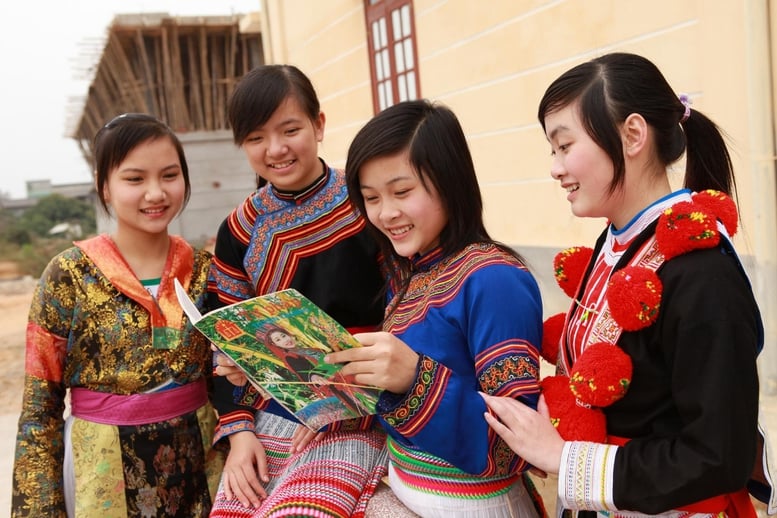
Approving the Program "Improving the quality of education and training for ethnic minorities in the Central Highlands"
Deputy Prime Minister Le Thanh Long signed Decision No. 2269/QD-TTg dated October 14, 2025 approving the Program "Improving the quality of education and training for ethnic minorities in the Central Highlands".
The program focuses on goals and solutions to improve the quality of preschool education, general education and continuing education in the Central Highlands in the provinces of Dak Lak, Gia Lai, Quang Ngai and Lam Dong, ensuring the subjects and scope according to the orientation in Resolution No. 23-NQ/TW dated October 6, 2022 of the Politburo on the direction of socio-economic development and ensuring national defense and security in the Central Highlands region to 2030, with a vision to 2045.
Strive for 100% of school-age children to go to school
The program sets specific goals for preschool education, striving to complete universal preschool education for preschool children. The rate of mobilizing children to go to school reaches 35 - 38% of children of nursery age. Strive to have 99.5% of preschool children attend school 2 sessions/day. The rate of stunted children is < 5%; the rate of underweight children is < 3%; 100% of children receive regular health check-ups.
For General Education, the Program targets the rate of school attendance at the right age at primary school to reach 99.5%, at lower secondary school to reach 97%; the rate of school-age children attending school to reach 100%; the rate of completing primary school to reach 99.7%, at lower secondary school to reach 99% and completing high school to reach 95%; 100% of primary school students to study 2 sessions/day. Increase the rate of ethnic minority students studying in ethnic boarding schools to over 15%.
100% of general education institutions with ethnic minority students organize activities for students to learn about ethnic minority culture in schools; ethnic minority students are taught the language and writing of their own ethnic group and the languages of neighboring countries according to the needs and regulations of the Ministry of Education and Training.
Strive for 100% of preschool and primary school teachers to meet training standards according to regulations.
Regarding the quantity and quality of the teaching staff, the Program strives for 100% of general education institutions with students registered to learn ethnic minority languages to have enough teachers to organize teaching of ethnic minority languages according to the regulations of the Ministry of Education and Training. 100% of preschool and general education teachers meet the standard qualifications and are trained according to the provisions of the Education Law; strive to increase the rate of teachers who meet above the standard. Strive for 100% of the management staff, teachers, and employees to be trained in ethnic minority languages and update their knowledge of local culture.
Regarding facilities and equipment, by 2030, strive to achieve 100% of solidification of schools, classrooms and teachers' housing; 65% of kindergartens, 65% of primary schools, 75% of secondary schools and 60% of high schools meeting national standards; 100% of schools have internet connection for learning and management purposes; 100% of primary, secondary and high schools have computer labs.
6 solution tasks
To achieve the above objectives, the Program will implement 6 specific tasks and solutions:
1. Strengthening the leadership and direction of Party committees and authorities at all levels, close coordination between sectors and levels, and the attention of the whole society to the development of education and training for the Central Highlands region.
Innovate propaganda methods to raise awareness of the role of education, improve people's intellectual level in socio-economic development, and ensure security and defense for the Central Highlands region.
2. Developing a network of educational facilities and enhancing facilities to meet the learning needs of ethnic minorities in the Central Highlands.
Planning and developing a network of educational facilities to ensure enough schools and classes to meet the requirements of universalizing preschool education for kindergarten, primary and secondary school children, aiming to implement 9 years of compulsory education, ensuring that all people have the opportunity to access education.
Continue to solidify schools and classrooms; eliminate temporary classrooms; promote the construction of national standard kindergartens and primary schools.
3. Developing a team of managers, teachers and staff
Prioritize the arrangement of sufficient quantity and structure of teaching staff and management staff; train and standardize the staff. Develop recruitment plans, supplement teachers and staff according to regulations, suitable to the characteristics of the Central Highlands; implement rotation to overcome local surplus and shortage. At the same time, order training and recruitment to ensure the source of teachers for English, ethnic minority languages and IT.
Issue or submit to competent authorities for issuance policies to attract teachers to work in disadvantaged areas in the Central Highlands; encourage high school graduates, especially ethnic minority students with good academic performance, to study pedagogy in subjects where there is a shortage of teachers, in order to create a quality human resource for education in the Central Highlands.
Continue to train and develop managers and teachers to meet new educational programs; enhance training for teachers and managers in information technology skills, digital skills, and integrated teaching according to the requirements of the 4.0 industrial revolution.
Training in ethnic minority languages and culture of the Central Highlands ethnic groups for managers and teachers to facilitate teaching, communication with parents and educating students to preserve ethnic cultural identity.
4. Maintain and improve the quality of mass education as a basis for improving the quality of key education; effectively implement universal education, eliminate illiteracy, and preserve the culture of ethnic minorities in the Central Highlands.
Promote and improve the effectiveness of illiteracy eradication and universal education at all levels, with special priority given to women and girls in ethnic minority areas with special difficulties; effectively implement recruitment policies linked to local needs and job placement capabilities, strengthen inclusive education for people with disabilities and children in special circumstances, and promote the socialization of education.
Innovate teaching, testing and assessment methods towards comprehensive development of students' qualities and abilities. Focus on political education, national defense and security, building strong political will and sense of responsibility for the task of building and protecting the Fatherland for students.
Strengthen career education and student orientation in line with production practices and local labor needs; have a mechanism to attract the participation of vocational training institutions and businesses in program development and evaluation of educational outcomes.
5. Promote the application of information technology and digital transformation in education
Strengthening conditions to ensure the implementation of information technology applications and digital transformation, prioritizing investment and having support policies to ensure high-speed Internet connection to all educational institutions, ensuring appropriate computer equipment for students and teachers.
Promote the application of information technology, digital transformation, modernization, and improve the efficiency of the education management system and teacher activities. Develop a digital science repository, an online question bank to share and use in schools in the area. Organize seminars and training courses to improve capacity in science and technology, digital technology application skills, and advanced educational methods such as STEM and AI for teachers and education managers.
6. Perfecting policies to support teachers and learners; mobilizing resources to implement the Program's goals.
Implement current policies well, continue to research, improve and effectively implement educational policies suitable for ethnic minority and mountainous areas in the Central Highlands, focusing on supporting policy-based learners, poor households, people with disabilities, and orphans; support policies for teachers in disadvantaged areas, policies to attract and improve the quality of staff; reward students and teachers with outstanding achievements, contributing to improving the quality of key education.
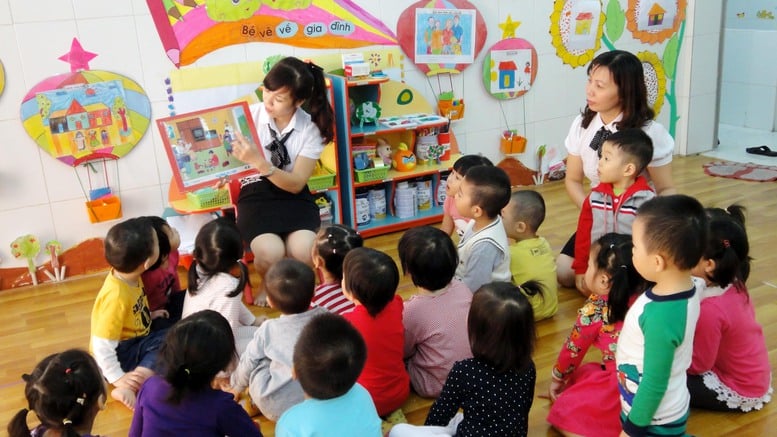
Approving the Program "Improving the quality of preschool education in urban areas and industrial parks for the period 2025 - 2035, with a vision to 2045"
Deputy Prime Minister Le Thanh Long signed Decision No. 2270/QD-TTg dated October 14, 2025 approving the Program "Improving the quality of preschool education in urban areas and industrial parks for the period 2025 - 2035, with a vision to 2045".
The objective of the Program is to support the improvement of the quality of preschool education in urban areas and industrial zones, helping children access quality, fair and equal preschool education services.
The program is implemented in urban areas as prescribed; areas with industrial parks, export processing zones, economic zones, high-tech zones, industrial clusters, and places with many workers as prescribed by law (hereinafter referred to as industrial parks). The subjects of application are preschool children; managers; preschool teachers and staff; parents or guardians of children (hereinafter referred to as parents of children); preschool educational establishments; and relevant organizations and individuals.
In areas with industrial parks, increase at least 10% of public kindergartens that organize groups for children under 24 months old.
The program sets out specific targets by 2035 as follows:
a) For children
In urban areas: 100% of children in preschools are nurtured, cared for, and educated in a safe manner, meeting the requirements of preschool education programs appropriate to practical conditions.
In areas with industrial parks: Strive for 100% of children from 6 months to 36 months old who are children of workers and laborers to be able to go to school and have access to quality preschool education services.
b) For managers, preschool teachers and staff
In urban areas: 100% of managers, preschool teachers and staff in preschool education facilities have access to documents on digital platforms.
In areas with industrial parks: Strive for 100% of managers, preschool teachers and staff in preschool education facilities to receive annual training to improve their professional and technical capacity.
c) For preschools
In urban areas: Strive for 50% of provincial-level units to build and deploy preschool education models suitable to local characteristics, gradually approaching advanced preschool education models.
In areas with industrial parks: Strive to increase the number of groups of children in preschools by at least 20% and increase the number of public preschools with groups for children under 24 months old by at least 10%; 100% of independent, non-public, and private preschools meet the standards of safe schools and accident and injury prevention as prescribed.
d) For parents of children: Strive for 100% of parents of children who are workers in industrial zones to be provided with knowledge and skills in raising, caring for, and educating children.
The program aims to strengthen and continue improving the quality of preschool education in urban areas and industrial zones by 2045. At the same time, replicate quality and effective preschool education models, ensuring fairness and suitability to the characteristics of urban areas and industrial zones nationwide.
6 tasks and solutions
To achieve the set goals, the Program has proposed the following tasks and solutions:
1. Perfecting mechanisms and policies for developing preschool education in urban areas and industrial zones.
a) Review and complete the system of legal documents on preschool education to meet the requirements of preschool education management and development according to the Party's policies, the Government's development strategies and plans, and the Program's goals.
b) Research and propose amendments and supplements to mechanisms and policies to continue promoting the socialization of education, creating the most favorable conditions to attract investors to participate in investing in the construction of kindergartens for children of workers and laborers in industrial parks.
c) Develop local specific policies for preschool education in industrial zones where there are many workers: policies for management staff, teachers, and employees directly raising, caring for, and educating children of workers and laborers, policies for preschools accepting children from 6 months to 36 months old, and policies for children of workers and laborers suitable to actual conditions.
2. Diversify preschool education models suitable to the characteristics of urban areas.
a) Arrange land funds for the construction of preschool education facilities according to approved planning, especially in new urban area projects; prioritize the use of surplus state agency headquarters after the reorganization of the local administrative apparatus for preschool education; continue to promote the development of non-public preschool education facilities.
b) Provide preschool education support services without using the state budget at public preschools according to the provisions of law to meet the needs of parents, along with policies to support managers, teachers, and staff working overtime.
c) Apply a cooperation model between the state and non-public preschool education service providers in the form of Operation and Management Contracts (O&M) according to the provisions of law on investment in the form of public-private partnerships with tuition fees suitable to the income of workers and laborers.
d) Build and develop preschool education models in local social housing projects suitable to the needs of workers and laborers.
d) Selectively apply advanced preschool education models through learning and sharing preschool education experiences from countries in the region and the world.
3. Improve the quality of care and education for children from 6 months to 36 months old who are children of workers and laborers in industrial zones.
a) Diversify forms of capacity building guidance for management staff, teachers and staff in preschool education facilities
- Develop and digitize a set of documents guiding the care, nurturing and education of children from 6 months to 36 months old.
- Organize training, professional development; seminars and workshops on education, nutrition, health care and child safety every year.
- Building a network of experts and volunteers to support, provide professional advice and apply digital transformation to improve the quality of operations of independent, private preschools.
- Review and supplement teacher training programs in pedagogical schools, train managers, teachers and staff in professional skills, focusing on skills in nurturing, caring for and educating children from 6 months to 36 months old and suitable to the characteristics of preschool education in industrial parks.
b) Ensure conditions for receiving children from 6 months to 36 months old at preschools
- Arrange enough teachers and invest in facilities, equipment, supplies, and toys for children in public kindergartens to meet the needs of workers and laborers.
- Arrange funding from the local budget to support preschool teachers in private preschools in industrial zones, where there are many workers trained to meet the required standards.
- Mobilize resources from Programs, Projects, non-governmental organizations, and non-refundable aid sources to support facilities, equipment, supplies, toys, and quality assurance conditions for independent, non-governmental, and private preschools.
- Exploit and use available local facilities (public works such as playgrounds, cultural and sports facilities...) for independent, private preschools to organize educational activities for children.
- Encourage businesses to fulfill their social responsibilities by building non-profit preschools, attached to housing areas in industrial parks to serve the children of workers and laborers.
c) Develop and disseminate guidance documents on nutrition, health care, and child education for parents; organize propaganda and dissemination of knowledge and parenting skills in forms appropriate to the characteristics of workers and laborers.
4. Mobilizing social resources associated with corporate responsibility and promoting international cooperation.
a) Mobilize coordination and participation from programs, projects, non-governmental organizations, businesses, organizations, and individuals to support the implementation of preschool education models suitable for urban areas and industrial parks.
b) Encourage enterprises that employ a large number of workers to fulfill their social responsibilities through investment or financial contributions to build preschool facilities for workers' children and pay part of the childcare costs for workers with preschool-age children.
c) Mobilize resources from international organizations to provide financial and technical support to improve professional capacity and expertise in childcare and education for teachers and staff at preschools.
5. Strengthen management, inspection, supervision and inter-sectoral coordination.
a) Strengthen the leadership and direction of Party committees and authorities in developing preschool education; incorporate the goal of developing preschool education in urban areas and industrial zones into local socio-economic development plans and programs.
b) Strengthen inter-sectoral coordination; develop and promulgate inter-sectoral coordination regulations between the sectors of Education, Home Affairs, Health, and the Fatherland Front, along with socio-political organizations, in the inspection and supervision of the activities of preschools in urban areas and industrial zones.
c) Strengthen inspection and supervision of the implementation of arrangement and reorganization of preschool education facilities; inspect the responsibility of investors of new urban area projects in allocating land and constructing preschool education facilities according to approved planning.
d) Develop software on preschool education database in urban areas and industrial zones and monitor and evaluate the implementation of the Program.
d) Guide independent, private preschools to self-inspect and evaluate safety standards, and regularly update information and operational status of the facility on local database management software.
6. Strengthen communication work.
a) Carry out propaganda and dissemination work on the necessity, goals, tasks and solutions for implementing the Program to raise awareness and responsibility of Party committees at all levels, local authorities, parents, managers, teachers, staff and the community in investing in and caring for the development of preschool education in urban areas and industrial parks.
b) Develop specialized pages and columns to promote the Program to improve the quality of preschool education in urban areas and industrial zones on central and local mass media.
c) Disseminate and popularize knowledge and skills on nurturing, health care, ensuring safety and comprehensive development for preschool children on mass media.
Process of selecting breakthrough initiatives according to the Strategic Action Plan to implement Resolution No. 57-NQ/TW on breakthroughs in science, technology development, innovation and national digital transformation
Deputy Prime Minister Nguyen Chi Dung signed Decision No. 2266/QD-TTg of the Prime Minister promulgating the Process of selecting breakthrough initiatives according to the Strategic Action Plan to implement Resolution No. 57-NQ/TW on breakthroughs in science and technology development, innovation and national digital transformation.
This process regulates the registration, reception, selection, recognition, assignment of tasks and implementation of breakthrough initiatives nationwide. The process is deployed centrally on the Science and Technology Initiative Portal, ensuring data connectivity via application programming interface (API) with relevant information systems.
Applicable subjects include: Ministries, ministerial-level agencies, government agencies, People's Committees of provinces and centrally-run cities; scientific and technological organizations, enterprises, research institutes, universities; social organizations and individuals at home and abroad who have proposed breakthrough initiatives according to Plan No. 01-KH/BCĐTW.
Requirements to be met by breakthrough initiatives
As a rule, a breakthrough initiative must meet the following requirements:
- Novelty and creativity: Has a distinct element that is superior to existing solutions.
- Breakthrough: Solves major bottlenecks and challenges in institutions, technology, resources or development models.
- Feasibility: Ensure feasibility in terms of technology, resources and have a clear implementation roadmap.
- Impact and spillover: Has the potential to create positive, far-reaching influence and contribute to the implementation of key indicators (KPIs) of the Strategic Action Plan.
- Ability to mobilize resources: Has the ability to strongly attract resources from society.
Process of receiving and selecting initiatives
The process of selecting breakthrough initiatives is implemented online, including the following 4 steps:
Step 1 - Proposing Initiative: All organizations and individuals submit proposals online through the Science and Technology Initiative Portal.
Step 2 - Screening and submitting to the Steering Committee: The Ministry of Science and Technology presides over the examination of the validity of the dossier and makes a preliminary assessment based on the prescribed criteria. For breakthrough initiatives with valid dossiers, the Ministry of Science and Technology shall establish an Evaluation Council within 3-5 working days, organize meetings or collect written opinions from Council members and ministries, branches and localities directly related to the breakthrough initiative. The deadline for completing the consultation, synthesis and screening is a maximum of 14 working days. For initiatives that meet the criteria, the Ministry of Science and Technology shall synthesize and submit them to the competent authority for consideration and decision; for initiatives that do not meet the criteria, the Ministry of Science and Technology shall reject them and send a written response to the proposing organization or individual. Based on the Council's assessment results, the Ministry of Science and Technology will prepare a Report with a list of initiatives identified as breakthroughs and strategic significance, and submit it to the Central Steering Committee for consideration and decision. For breakthrough initiatives with invalid dossiers, the Ministry of Science and Technology will refuse to evaluate and notify organizations and individuals through the Science and Technology Initiative Portal.
Step 3 - Review and Approval: The Central Steering Committee (through the Standing Agency, the Central Party Office) presides over the review of proposed initiatives submitted by the Ministry of Science and Technology, with in-depth consultation with the 57 Chief Engineers and the National Advisory Council, before making a final decision and announcing the addition to the list. The maximum review completion time is 30 working days from the date of receipt of the Submission.
Step 4 - Assigning tasks and Organizing implementation: After approval, the Central Steering Committee assigns the Government to direct relevant agencies to concretize the initiative into programs, projects and organize implementation depending on the scale and nature. The assigned agencies periodically report progress to the Central Steering Committee (through the Ministry of Science and Technology).
Selection criteria
Preliminary Screening Criteria (Round 1 - at the Ministry of Science and Technology):
- Suitability: Consistent with the country's policies and strategic orientations.
- Breakthrough: Clearly shows new, creative, breakthrough elements, solving important problems.
- Feasibility: Has scientific and practical basis for implementation.
- No duplication: No duplication in content with approved tasks.
Assessment and recognition criteria (Round 2 - at the Central Steering Committee):
- Fully meet the preliminary screening criteria.
- Impact potential: Has the ability to create great influence and spread widely.
- Urgency: Solve priority, urgent problems.
- Implementation capacity: Enterprises and organizations in Vietnam have sufficient capacity and resources to implement.
- Ability to mobilize social resources: Highly attractive to attract non-budgetary investment.
Source: https://baotintuc.vn/chinh-sach-va-cuoc-song/nhung-chi-dao-dieu-hanh-cua-chinh-phu-thu-tuong-chinh-phu-noi-bat-ngay-1510-20251015211633733.htm


![[Photo] Conference of the Government Party Committee Standing Committee and the National Assembly Party Committee Standing Committee on the 10th Session, 15th National Assembly](https://vphoto.vietnam.vn/thumb/1200x675/vietnam/resource/IMAGE/2025/10/15/1760543205375_dsc-7128-jpg.webp)


![[Photo] General Secretary To Lam attends the 18th Hanoi Party Congress, term 2025-2030](https://vphoto.vietnam.vn/thumb/1200x675/vietnam/resource/IMAGE/2025/10/16/1760581023342_cover-0367-jpg.webp)


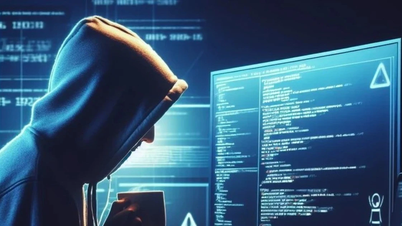

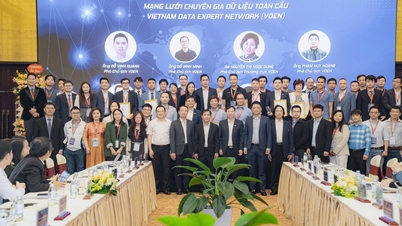

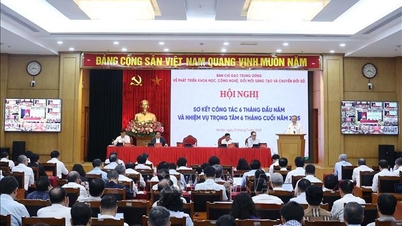
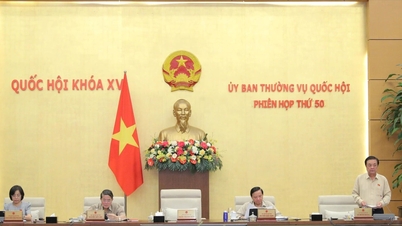

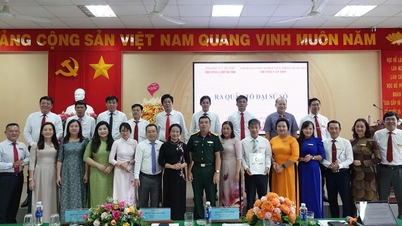

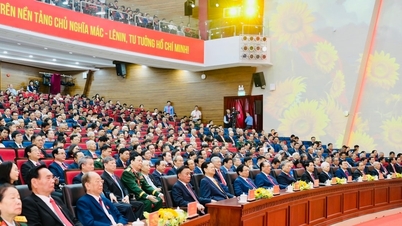
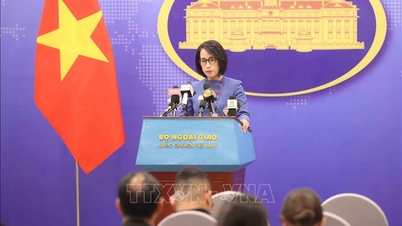
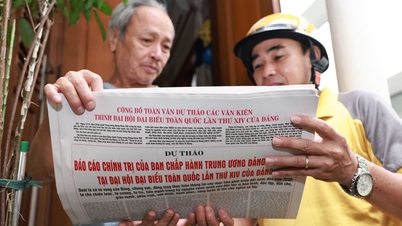
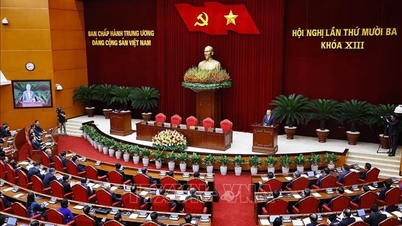
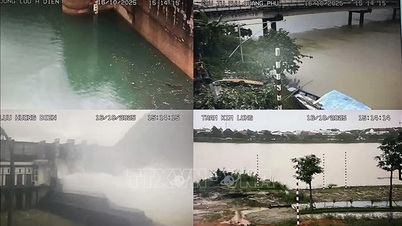
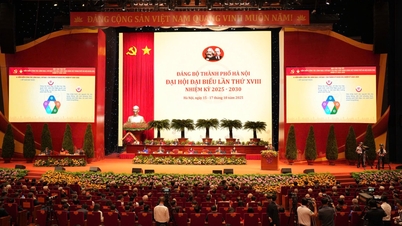
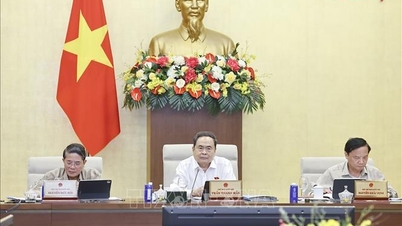





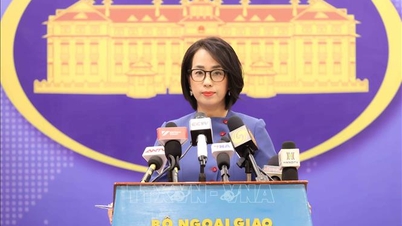

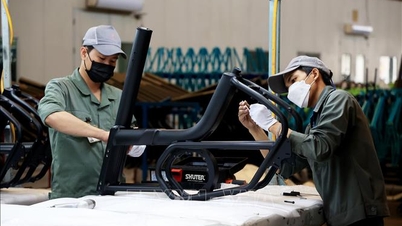
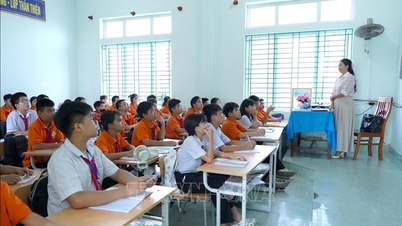
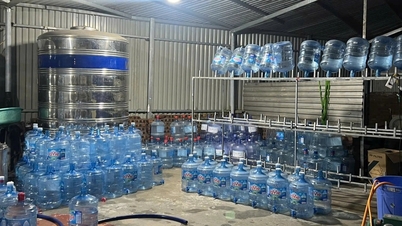






![[Video] TripAdvisor honors many famous attractions of Ninh Binh](https://vphoto.vietnam.vn/thumb/402x226/vietnam/resource/IMAGE/2025/10/16/1760574721908_vinh-danh-ninh-binh-7368-jpg.webp)





























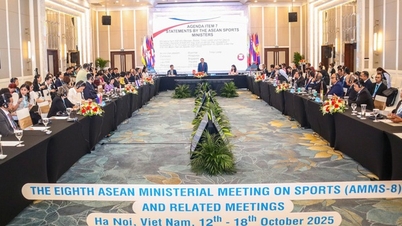



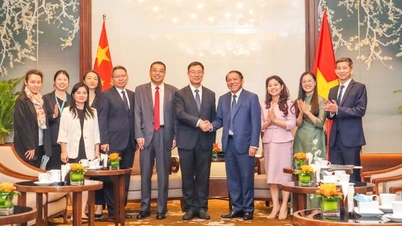
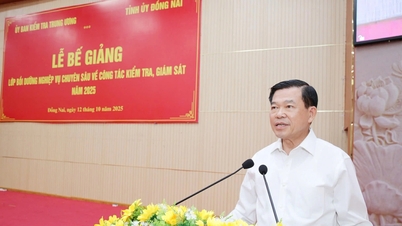



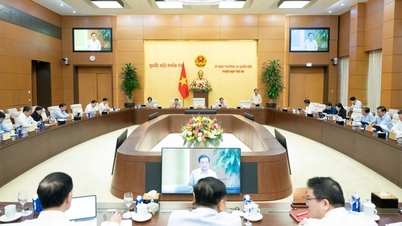
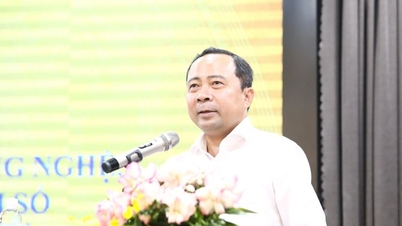

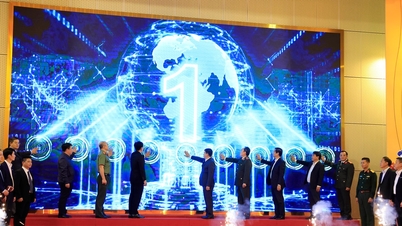

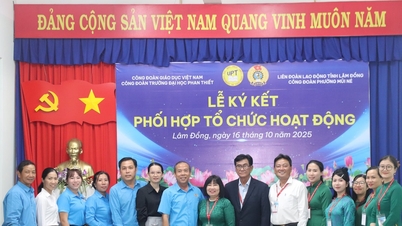
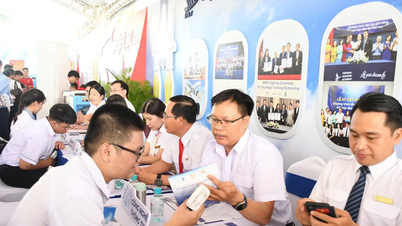

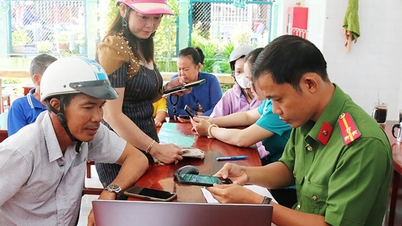
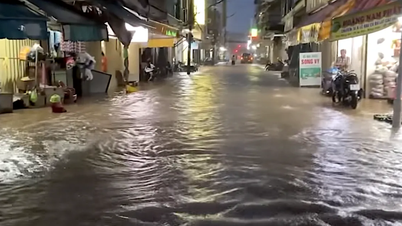
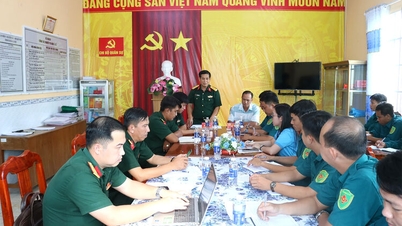
















Comment (0)